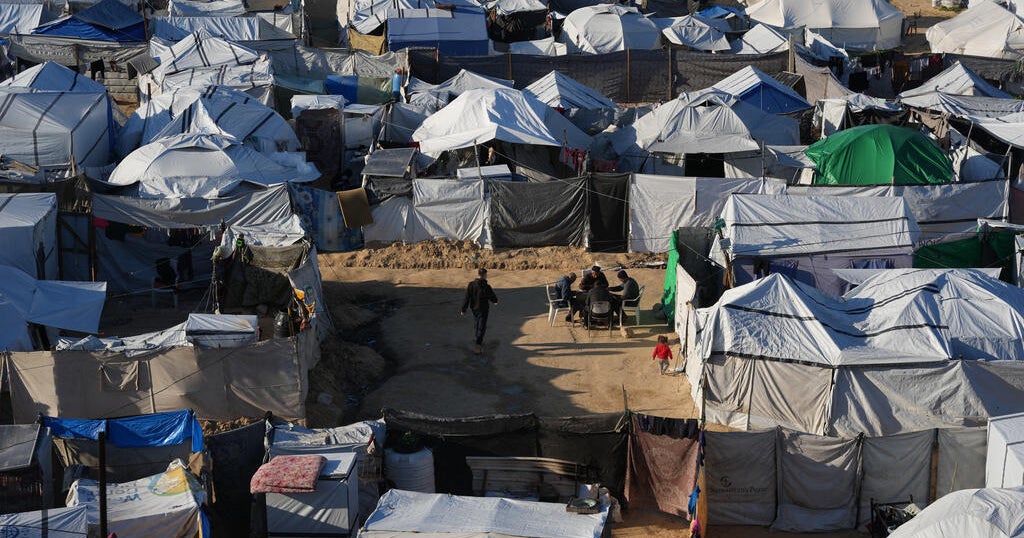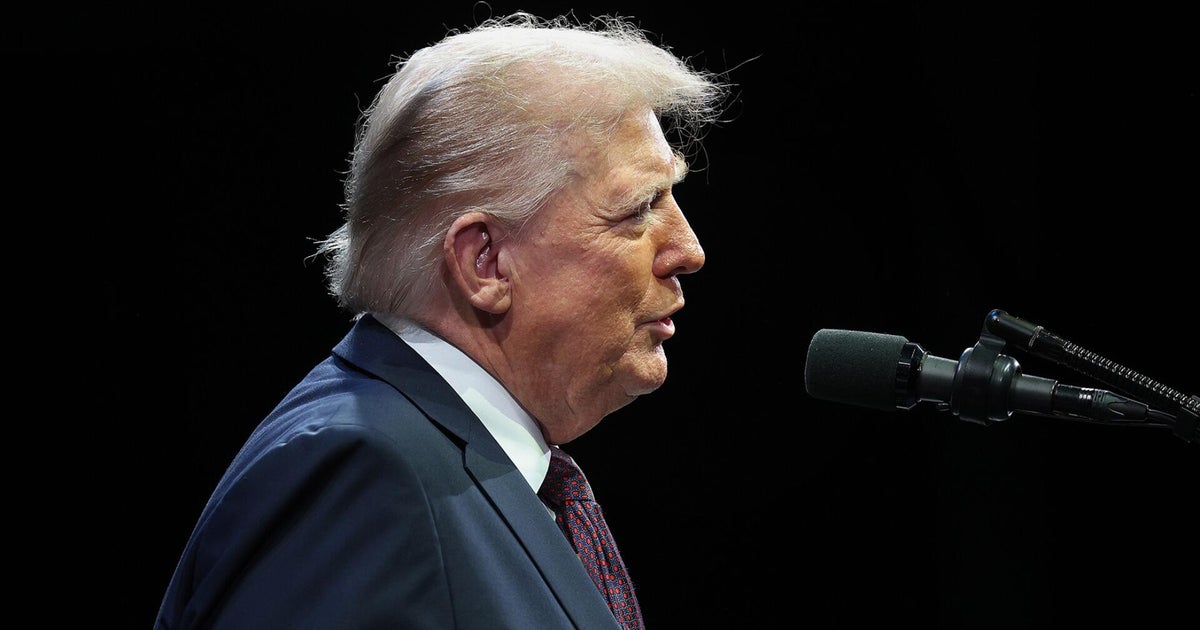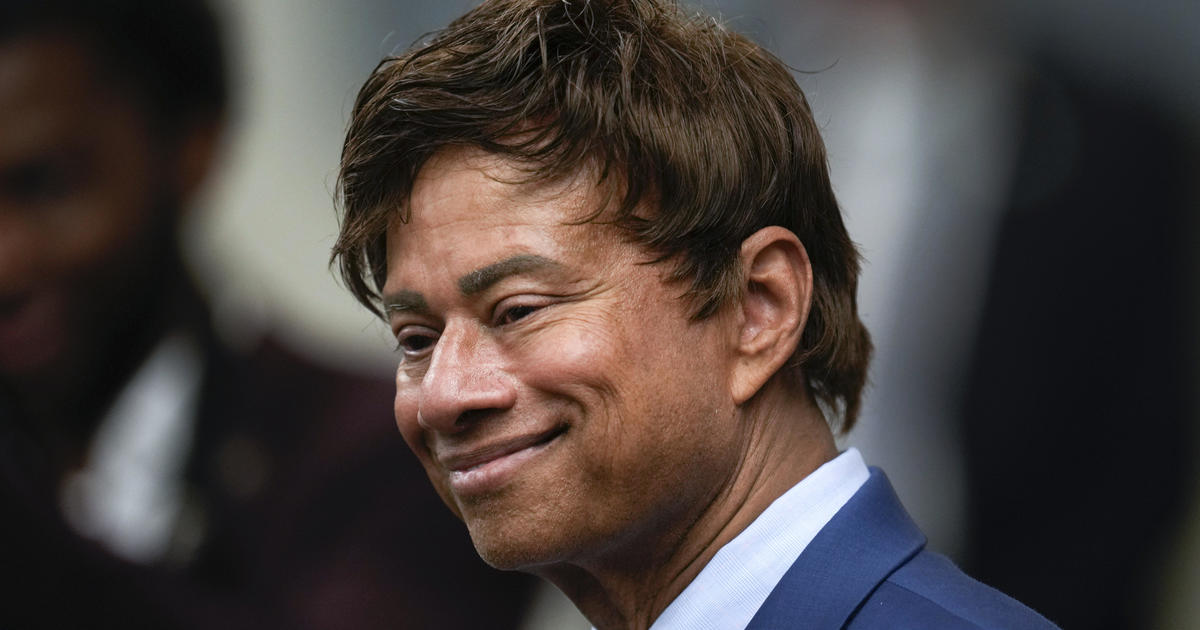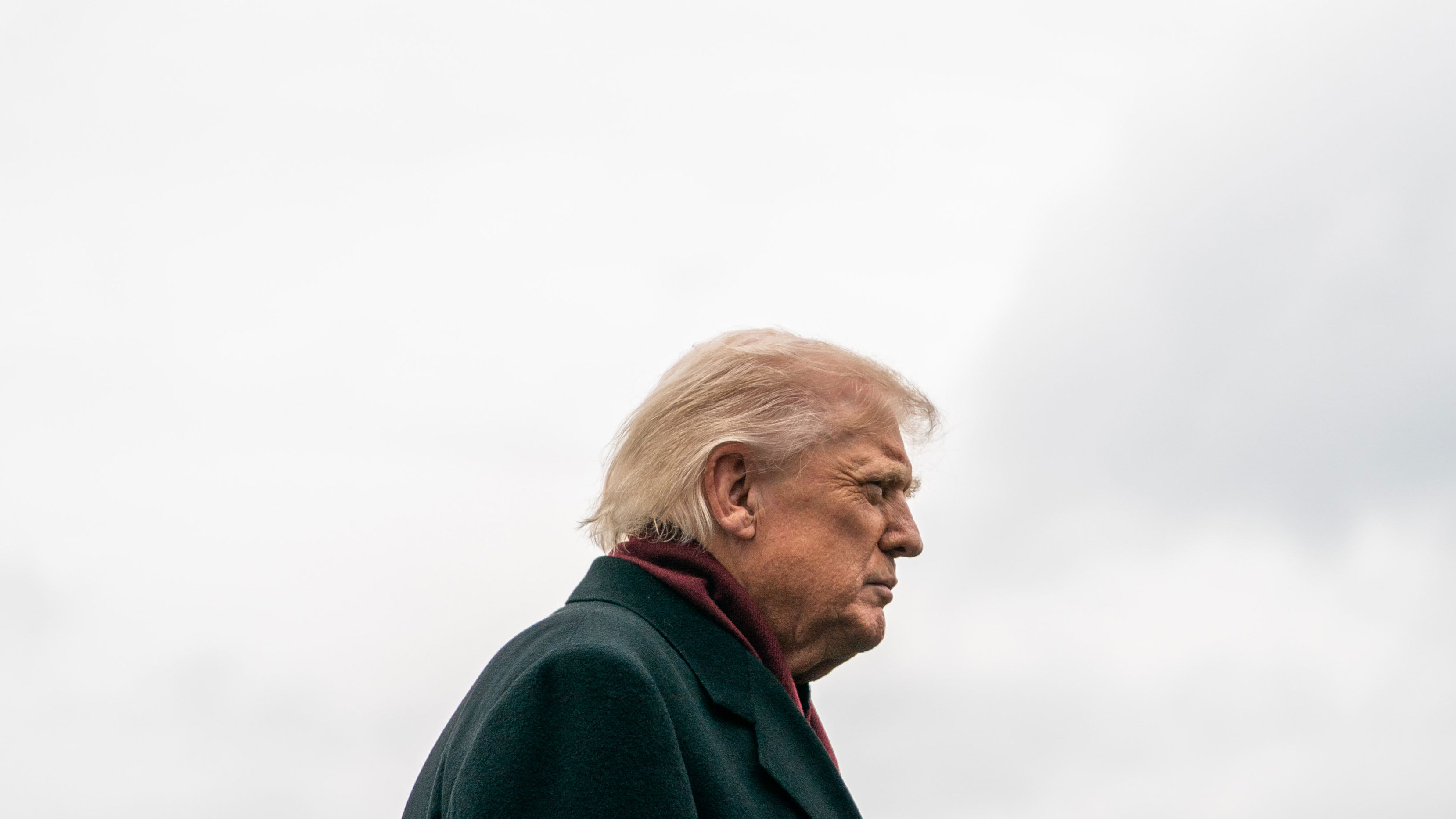Ukraine's ambassador to U.S. says "we cannot afford to panic" over Russian aggression
Washington — Ukraine's Ambassador to the U.S. Oksana Markarova said Sunday that Ukraine "cannot afford to panic" over the ongoing crisis with Russia and its military buildup along Ukraine's borders, but is aware of Moscow's capabilities.
"For eight years, we are at war and we are defending our country," Markarova said in an interview on "Face the Nation," referencing Russia's invasion and occupation of Crimea in 2014. "At the same time, in order to defend our country, we cannot afford to panic. We have to get ready, all of us, not only our military, our very capable military and veterans, but also all civilians."
While the Biden administration and U.S. allies have warned a Russian invasion of Ukraine is "imminent" given the build-up along Ukraine's borders, Ukrainian President Volodymyr Zelenskyy has called the escalation by Russia an act of "psychological pressure." A White House official, though, said "at the same time [Zelenskyy is] downplaying the risk of invasion, he's asking for hundreds of millions of dollars in weapons to defend against one."
Markarova rejected that notion, and said Ukraine instead knows "what Russia is capable of."
"Let's be very clear here, we know who the aggressor is. Everyone knows who the aggressor is. It's Russia," she said.
Russia's continued amassment of more than 100,000 forces, as well as tanks and other weaponry, along Ukraine's borders has escalated concerns among the U.S. and allies of a full-scale Russian invasion. In an effort to deter Russian President Vladimir Putin from mounting an assault, the Biden administration has pursued a diplomatic route, and has threatened to hit Russia with sanctions if it attacks Ukraine.
Ukraine, though, has been pushing for sanctions on Russia now in response to its 2014 invasion of Crimea, as well as in the future should Putin order an attack.
"There are reasons to continue sanctioning Russia for their attack that already happened," Markarova said.
Ambassador Victoria Nuland, undersecretary of state for political affairs, told "Face the Nation" that the U.S. has worked with European allies on a "massive package of economic sanctions" to ensure that if Putin invades Ukraine, "he will feel it acutely, as will the Russian people in terms of their economy. It will have a crushing blow on them."
"Deterrence is best when there's a little bit of strategic ambiguity around exactly what we are going to do," she said. "So we've said financial measures, we've said export controls, we've said new sanctions on Russian elites. But if we put them on the table now, then Russia will be able to start mitigating and that doesn't make any sense to us."
While the U.S. has made clear it prefers to ease the crisis between Russia and Ukraine through diplomacy, Nuland said there has not been signs of de-escalation. Putin has instead moved more forces, she said, though the U.S. does not believe he has made a decision on what to do next.
"As he has done in the past, he's given himself every option, including ... a massive potential invasion of all of Ukraine, including cyberattacks, including incursion from Belarus, where he is moving up to 30,000 troops there as well. So we have to be prepared for all options," Nuland said.
In response to the ongoing tensions between Ukraine and Russia, the U.S. is sending $200 million more in military assistance for Ukraine, in addition to the $450 million in defensive aid supplied in 2021. The Pentagon also placed 8,500 troops on high alert for deployment to the region if requested by the NATO alliance, and NATO has sent fighter jets, troops and ships to eastern Europe.
President Biden told Zelenskyy during a call Thursday that the U.S. is also "exploring additional macroeconomic support to help Ukraine's economy amidst pressure resulting from Russia's military build-up," according to a readout of the conversation from the White House.
Markarova, though, said Ukraine is also looking for assistance from the U.S. with building up its defense capabilities, which she said is "not only for Ukraine. It's for European security."
"It's not fighting for Ukraine only, it's actually fighting for values and principles that we all share, that every country has the right to be sovereign, that every country has the right to be free and that all nations have the right to choose how they want to live," she said. "We're fighting for our independence and if Ukraine will be further attacked by Russia, of course they will not stop after Ukraine."





